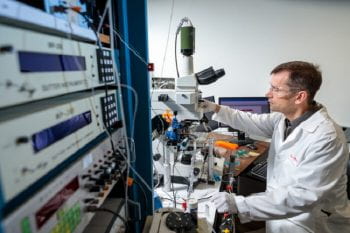In humans and other animals, signals from a central circadian clock in the brain generate the seasonal and daily rhythms of life. They help the body to prepare for expected changes in the environment and also optimize when to sleep, eat and do other daily activities. Scientists at Washington University in St. Louis are working […]
Daily rhythms depend on receptor density in biological clock





